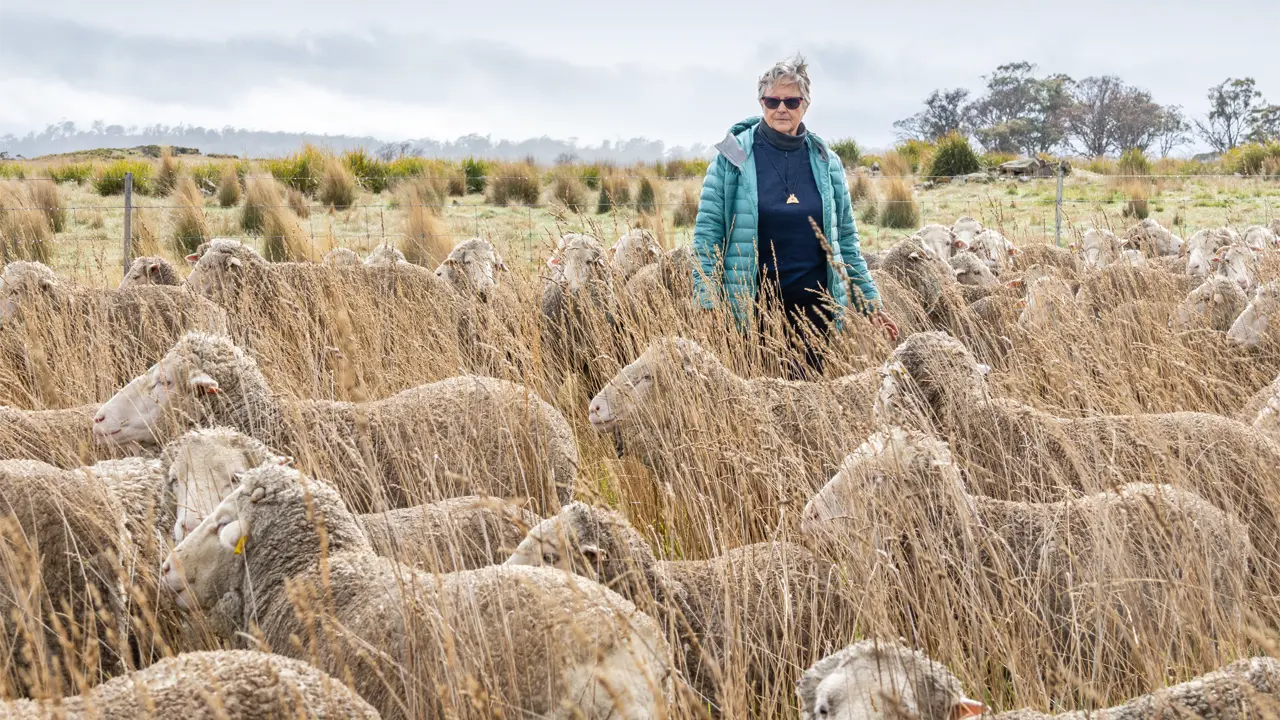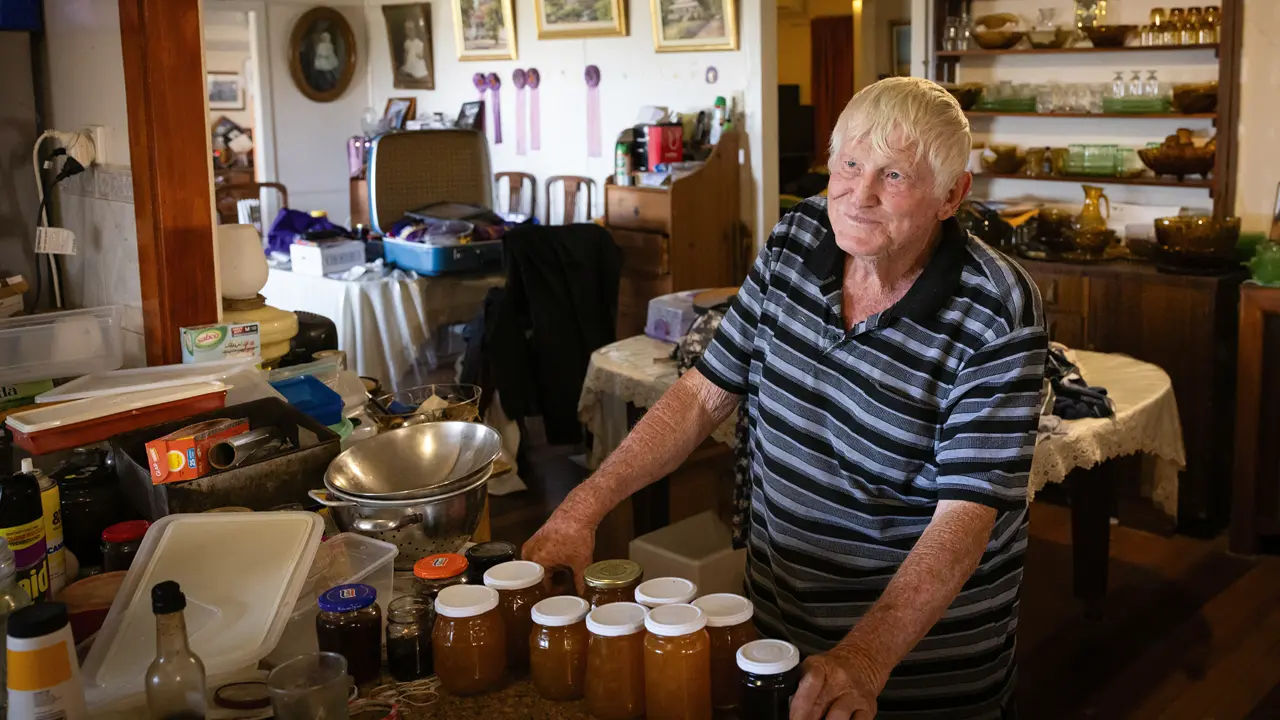Conventional farming is not in Nan Bray’s lexicon. Instead, the Tasmanian scientist-turned-sheep-farmer uses a range of sustainable and ethical practices.
Story Kirsty McKenzie Photos Ken Brass
Nan Bray’s sheep barely raise their heads as she walks through the paddock on Lemon Hill, her 330ha farm near Oatlands in Tasmania’s Midlands. It’s not that they’re accustomed to being fed because, after the 2009 drought, Nan resolved never to handfeed again, sold all her feed-out equipment and opted to reduce stock numbers – and grazing pressure – to ensure she always has sufficient pasture to see them through dry times. It’s more that Nan’s sheep are used to having her around, as she practises shepherding as a grazing strategy and her flock is so accustomed to her presence that she considers herself “an honorary sheep”.
It’s not uncommon for Nan to spend entire days standing, sitting or even sleeping in the paddock with her sheep – 601 Saxon Merinos at the latest count. She says there is no better way to monitor their health and wellbeing than by spending time with them in the landscape. It enables her to identify and treat flystrike early, and better judge the right time to move the sheep to help them find the fodder biodiversity they need to stay healthy.
There is nothing conventional about any of Nan’s farming practices, or the performance of her sheep, which most years deliver 2,000kg of 17-micron superfine wool. While she cheerfully admits that most of her farming neighbours probably think she’s as “mad as a box of frogs”, there’s solid science as well as a great deal of heart backing every decision the former marine physicist makes.
This story excerpt is from Issue #154
Outback Magazine: April/May 2024









